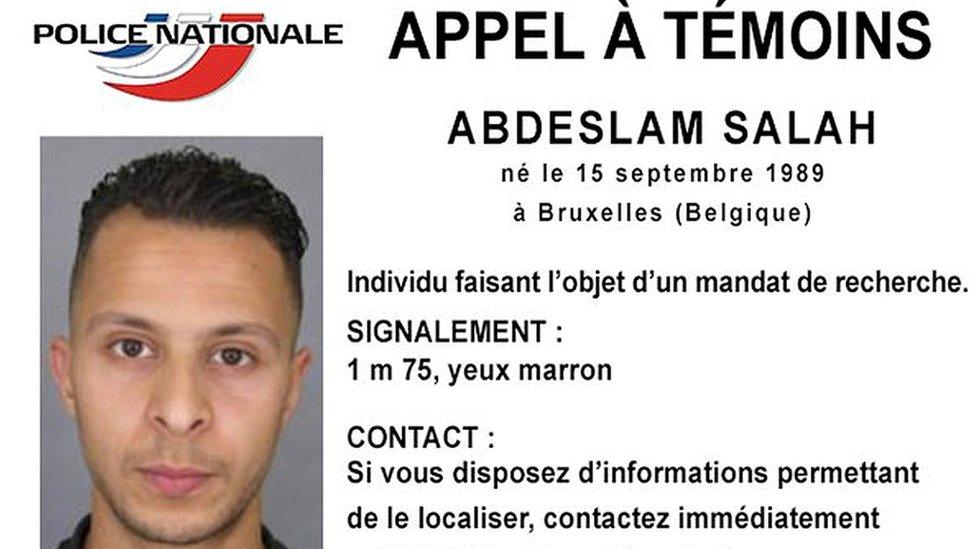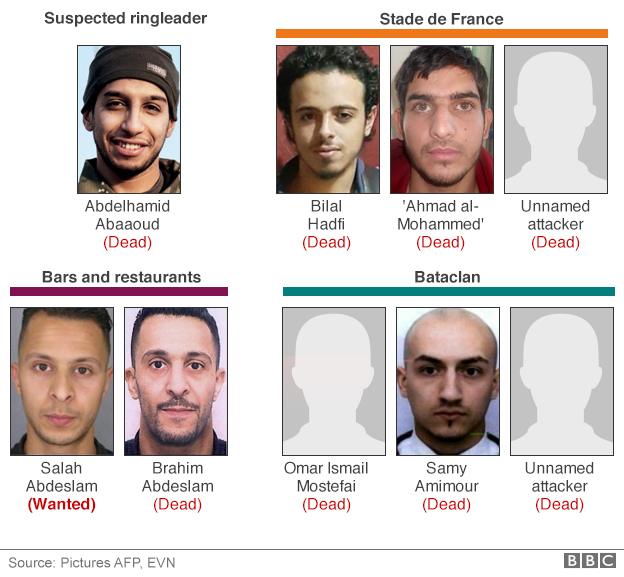Paris attacks: Salah Abdeslam 'may have failed to blow himself up'
- Published

The man being sought as one of the main suspects of the Paris attacks may have meant to blow himself up, reports say.
Salah Abdeslam appeared to be wearing a suicide belt, one of the men who drove him back to Belgium after the attacks told his lawyer.
Friends told ABC News that they believed he was in the Brussels area and trying to get to Syria to join Islamic State militants.
IS has said it was behind the attacks that killed 130 people.
A manhunt has been under way for more than a week for Abdeslam, a Brussels-born French national.
He is believed to have rented a VW Polo car in Belgium, which was later found near the Bataclan concert hall where 89 people were killed.
He is also believed to have driven a car from which gunmen shot at people on the terraces of bars.
The day after the attacks, Abdeslam was picked up in Paris by Hamza Attou and Mohammed Amri and driven to Brussels, Attou's defence lawyer, Carine Couquelet told French TV, external.

Read more on the Belgian connection to Paris attacks

Ms Couquelet said her client told her that Abdeslam had been "extremely agitated", and "perhaps ready to blow himself up".
They had exchanged a few words and Mr Attou had been terrified during the journey, she said. But Abdeslam had been "very calm" when police checked their identity papers.
This raised questions, including the possibility that Salah Abdeslam may have been supposed to blow himself up in Paris but had had second thoughts, the lawyer added.
A relative of Salah Abdeslam: "We really hope he surrenders before the police kill him"
Two friends of Abdeslam told ABC News, external they had spoken to him on Skype and said he was hiding in Brussels and desperately trying to get to Syria.
They said he was caught between European authorities hunting him and IS members who were "watching him" and were unhappy that he had not detonated his suicide belt.
Abdeslam's brother, Mohamed, has issued public calls for his brother to turn himself in.
He told Belgian television RTBF: "We say to him that we prefer to see him in prison rather than in a graveyard."

